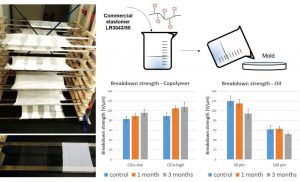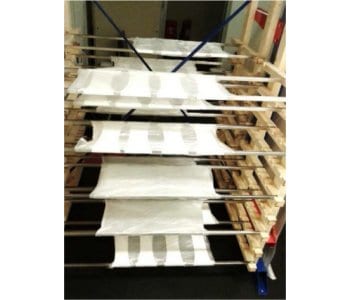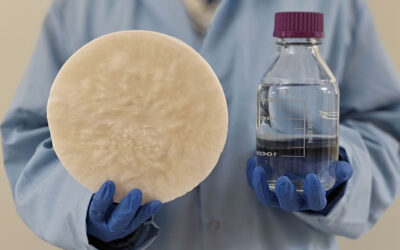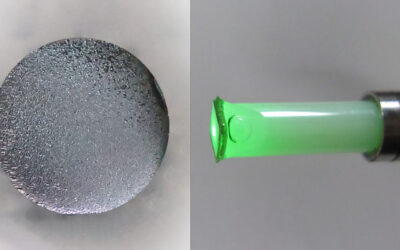 Dielectric elastomer transducers (DETs) are an emerging technology with many diverse potential applications including wave energy harvesters, ultra-thin loudspeakers, prosthetics and artificial muscles. They consist of a thin elastomer membrane sandwiched between two compliant electrodes and are thus of a light-weight nature. DETs have the ability to change their size and shape, i.e. actuate, when a voltage is applied over the electrodes. Reversible, DETs can also be used as sensors and energy generators when subjected to a mechanical deformation. For DETs to be fully implementable in a broad spectrum of commercial products a leap in material technology is required, and in particular the lifetime of the utilized elastomer materials needs further investigation.
Dielectric elastomer transducers (DETs) are an emerging technology with many diverse potential applications including wave energy harvesters, ultra-thin loudspeakers, prosthetics and artificial muscles. They consist of a thin elastomer membrane sandwiched between two compliant electrodes and are thus of a light-weight nature. DETs have the ability to change their size and shape, i.e. actuate, when a voltage is applied over the electrodes. Reversible, DETs can also be used as sensors and energy generators when subjected to a mechanical deformation. For DETs to be fully implementable in a broad spectrum of commercial products a leap in material technology is required, and in particular the lifetime of the utilized elastomer materials needs further investigation.
Silicone elastomers are the most commonly used elastomer in DETs due to their favourable properties such as high efficiency, reliability and fast response times. However, silicone suffers from an inherent low dielectric permittivity. Thus further optimization of the elastomers are required for optimal performance, such as a decreased Young’s modulus and/or increased dielectric permittivity to prompt enhanced actuation responses at a given voltage. Soft silicone elastomers can be obtained through addition of silicone oils, while enhanced permittivity can be obtained from addition of dipolar groups.
In this study by A. L. Skov et al. such modified silicone elastomers were prepared by using a reliable, strong commercial elastomer, Elastosil LR3043/50, mixed with a choice of cross-linkable, slightly dipolar chloropropyl-functional copolymers, chloropropyl-functional silicone oils or PDMS-based silicone oils. The long-term stability of the materials was tested by straining the elastomers 60% statically for up to three months. The properties typically characterising DETs, namely Young’s modulus, maximum strain and dielectric breakdown strength, were measured, and the results showed that soft fillers significantly influence the long-term stability of silicone elastomers, with electrical breakdown strength being the most negatively affected over time. High concentrations of oils, whether chloropropyl-functional or PDMS-based, should be avoided, since this induces significantly reduced electrical breakdown strengths and mechanical stability, both before and after strain ageing.

















